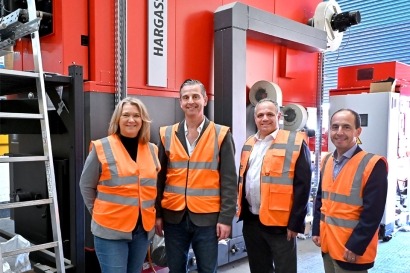
The new plant will be fueled using the waste generated by the company’s manufacturing processes and the energy generated will help heat the buildings across the site as well as its kilns, which is a key component in the manufacture of timber products.
Managing director David Nicklin, who is the fourth generation of his family to run the company since it was founded in Birmingham in 1913, said the move towards renewable energy was an essential part of Nicklin’s commitment to becoming a more sustainable business.
He said, “The looming climate crisis is the biggest challenge facing society and every individual and business has an obligation to do all that it can to ensure that it is taking steps to minimize its own impact on the environment.
“In recent years we have taken a range of steps to reduce our carbon footprint, from investing in a fleet of electric forklift trucks to introducing LED lighting across our Wednesbury plant, but the biomass investment will be a real game changer in terms of our aspirations to achieve the lowest net carbon position possible for our business.”
As well as eradicating the need for natural gas for heating, which has an increasing financial and environmental cost, the biomass plant will burn the 1,000 tons of timber waste created by the plant annually, reducing the need for skips as well as the thousands of haulage miles necessary to remove the waste to landfill or repurposing plants where it is turned into animal bedding, garden mulch or wood fuel.
The new plant will also enable Nicklin to enhance its customer offer by collecting their waste timber, in turn helping customers to reduce their own carbon footprint.
Nicklin added, “This is our biggest ever single investment as a business and reflects not just our commitment to being the best possible business we can be, both for our customers and the wider community, but also the resilience of the business against the backdrop of the challenges everyone has faced in recent years and our confidence going forward.
“This investment enables us to take the next step in our sustainability journey, provides us with energy security in a time of significant uncertainty and also makes clear commercial sense with customers and suppliers increasingly looking to do business with companies that share their values about the future of the planet.”

